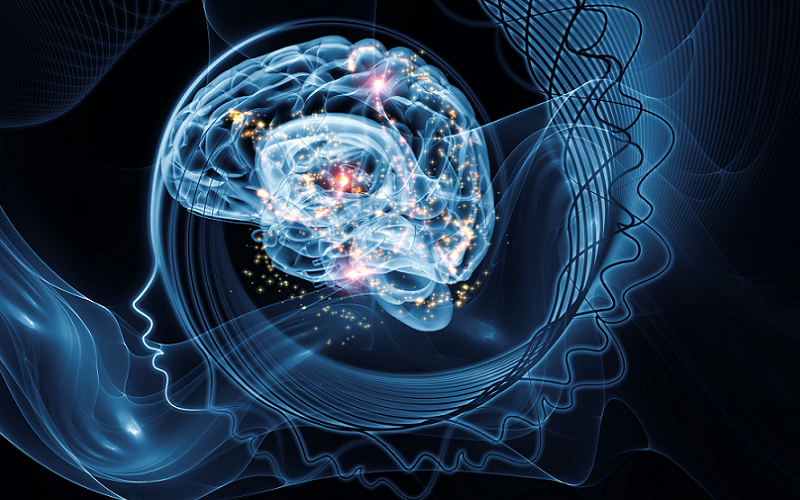
Cognitive decline, a concerning aspect of aging, affects millions worldwide, with its impact on daily life ranging from mild forgetfulness to debilitating conditions like dementia. While various factors contribute to this decline, recent research highlights a crucial but often overlooked aspect: nutrition. Our brains, the command centers of our bodies, require a symphony of nutrients to function optimally. Deficiencies in these essential nutrients can not only impair cognitive abilities but may also accelerate the progression of cognitive decline.
Contents
- Role of Nutrition in Cognitive Health
- Nutritional Deficiencies and Cognitive Decline
- Key Nutrients in Preventing Cognitive Decline
- Diet and Lifestyle for Cognitive Health
- References
Role of Nutrition in Cognitive Health
The brain is an energy-intensive organ, relying heavily on a rich supply of nutrients to function optimally. Understanding the role of nutrition in cognitive health is crucial, as it lays the foundation for how dietary choices can impact brain function and potentially influence cognitive decline.
Nutrients Essential for Brain Function
Before delving into specific nutrients, it’s important to appreciate why they are vital. The brain utilizes various nutrients, each playing unique roles in maintaining neural health, facilitating communication between neurons, and protecting against oxidative stress.
Omega-3 Fatty Acids
These are crucial for brain structure and function. DHA, a type of omega-3, is a major structural component of the brain and is essential for neural development and function.
B Vitamins
Vitamins like B6, B9 (folate), and B12 are pivotal in brain health. They aid in the production of neurotransmitters and maintenance of the myelin sheath, which protects nerve fibers.
Antioxidants
Vitamins C and E, along with flavonoids and polyphenols, act as antioxidants. They help combat oxidative stress, which can damage brain cells.
How Nutrition Influences Cognitive Health
Nutrition’s influence on cognitive health is both direct and indirect. Directly, nutrients affect brain chemistry, neuroplasticity (the brain’s ability to adapt and change), and overall brain health. Indirectly, a good diet supports cardiovascular health, which is closely tied to cognitive function.
Neurotransmitter Synthesis
Nutrients like amino acids and vitamins are building blocks for neurotransmitters, the brain’s chemical messengers.
Neuroplasticity
Omega-3 fatty acids, for instance, enhance neuroplasticity, which is crucial for learning and memory.
Blood Flow: A heart-healthy diet also supports good blood flow to the brain, ensuring a steady supply of oxygen and nutrients [1].
Studies Linking Nutrition and Cognitive Performance
Several studies have underscored the link between nutrition and cognitive performance, offering valuable insights into how dietary patterns can influence brain health.
Mediterranean Diet
Research has consistently shown that a Mediterranean diet, rich in fruits, vegetables, whole grains, and healthy fats, is associated with lower risks of cognitive decline.
Antioxidant-Rich Foods
Studies indicate that foods high in antioxidants can reduce the risk of cognitive impairment.
Vitamin B and Cognitive Function
Deficiencies in B vitamins, particularly B12 and folate, have been linked to poor cognitive performance in older adults.

Nutritional Deficiencies and Cognitive Decline
While a nutritious diet can bolster cognitive health, the flip side – nutritional deficiencies – can have detrimental effects on the brain. This section explores how lacking certain nutrients can accelerate cognitive decline, delving into the mechanisms behind this connection and what research tells us.
Common Nutritional Deficiencies Affecting the Brain
There are several key nutrients whose deficiencies are particularly concerning for brain health:
Vitamin B12
Essential for nerve health and cognitive function, a deficiency in B12 can lead to memory loss and confusion.
Folate (Vitamin B9)
Crucial for DNA synthesis and repair, folate deficiency is linked to cognitive impairment, especially in older adults.
Omega-3 Fatty Acids
Low levels of omega-3s are associated with cognitive decline and dementia, as these fats are critical for brain structure and function.
Mechanisms Linking Nutritional Deficiencies to Cognitive Decline
The pathways through which nutritional deficiencies contribute to cognitive decline are complex and multifaceted:
Neurotransmitter Disruption
Deficiencies in certain B vitamins, for instance, can disrupt the production of neurotransmitters, affecting mood and cognitive processes [2].
Neural Protection
Nutrients like omega-3s and antioxidants protect neurons from damage and inflammation, and their absence can increase vulnerability to cognitive disorders.
Brain Atrophy
Some studies suggest that deficiencies, particularly in B vitamins, can lead to brain atrophy and increased risk of neurodegenerative diseases.
Case Studies and Research Findings
Research has provided compelling evidence linking nutritional deficiencies to accelerated cognitive decline:
Vitamin B and Alzheimer’s Disease
Studies have shown that low levels of B vitamins are associated with a higher risk of Alzheimer’s disease.
Dietary Patterns and Cognitive Decline
Research indicates that diets lacking in essential nutrients are correlated with faster cognitive decline in older adults [3].
Omega-3 Fatty Acids and Brain Health
Clinical trials have found that omega-3 supplementation can improve cognitive function in individuals with mild cognitive impairment.

Key Nutrients in Preventing Cognitive Decline
Adequate nutrition is a powerful tool in safeguarding cognitive health. This section highlights key nutrients that are particularly effective in preventing cognitive decline, offering insights into their roles and benefits.
Vitamins (B12, D, E, etc.)
Vitamins play a critical role in brain health, and certain vitamins are particularly important:
Vitamin B12
Vital for maintaining nerve health and cognitive function, B12 is crucial in preventing memory loss and maintaining brain health.
Vitamin D
Often overlooked, Vitamin D is linked to cognitive performance. Deficiency in Vitamin D is associated with an increased risk of cognitive decline.
Vitamin E
As a potent antioxidant, Vitamin E helps combat oxidative stress in the brain, which can lead to cognitive deterioration.
Omega-3 Fatty Acids
Omega-3 fatty acids, particularly DHA and EPA, are essential for brain health:
Structural Role
DHA is a major structural component of the brain and plays a crucial role in maintaining brain health and function.
Cognitive Health
Regular intake of omega-3 fatty acids is associated with reduced risk of cognitive decline and can improve cognitive function in older adults [4].
Antioxidants
Antioxidants are crucial in protecting the brain from oxidative stress and in promoting cognitive health:
Flavonoids and Polyphenols
Found in fruits, vegetables, and tea, these antioxidants are known to enhance memory and cognitive function.
Vitamins C and E
As natural antioxidants, these vitamins play a role in protecting brain cells from oxidative damage.
Diet and Lifestyle for Cognitive Health
Adopting a healthy diet and lifestyle is key to preserving cognitive function and preventing decline. This section provides practical advice on dietary choices and lifestyle habits that can support brain health.
Dietary Recommendations
The right diet can have a profound impact on brain health. Here are some dietary guidelines to support cognitive function:
Diverse, Nutrient-Rich Diet
Incorporate a variety of fruits, vegetables, whole grains, lean proteins, and healthy fats into your diet [5].
Mindful Eating
Pay attention to portion sizes and try to eat mindfully, savoring each bite and recognizing when you are full.
Limit Sugar and Processed Foods
Excessive sugar and processed foods can negatively impact cognitive health, so it’s best to limit these in your diet.
Lifestyle Factors Influencing Nutrition and Brain Health
In addition to diet, certain lifestyle factors play a crucial role in maintaining cognitive health:
Regular Physical Activity
Exercise not only benefits physical health but also has a positive impact on cognitive function. Aim for at least 30 minutes of moderate exercise most days of the week.
Adequate Sleep
Good sleep is essential for brain health. Aim for 7-9 hours of quality sleep each night.
Stress Management
Chronic stress can negatively impact brain health. Techniques like mindfulness, meditation, or yoga can be effective in managing stress.
Integrating Healthy Eating Habits
Making lasting changes to eating habits can be challenging. Here are some tips for integrating healthy eating into your lifestyle:
Plan Meals
Planning meals in advance can help ensure you’re eating a balanced diet and avoiding unhealthy choices.
Healthy Snacking
Choose healthy snack options like nuts, fruits, or yogurt to maintain energy levels and support brain health.
Stay Hydrated
Adequate hydration is essential for overall health, including cognitive function. Aim to drink at least 8 glasses of water a day.
References
[1] Nutrition and cognitive health: A life course approach
[2] Nutritional factors, cognitive decline, and dementia
[3] Vitamin Deficiency and Its Impact on Brain Health
[4] Malnutrition is positively associated with cognitive decline in centenarians and oldest-old adults: A cross-sectional study
[5] Effects of Nutrition on Cognitive Function in Adults with or without Cognitive Impairment

